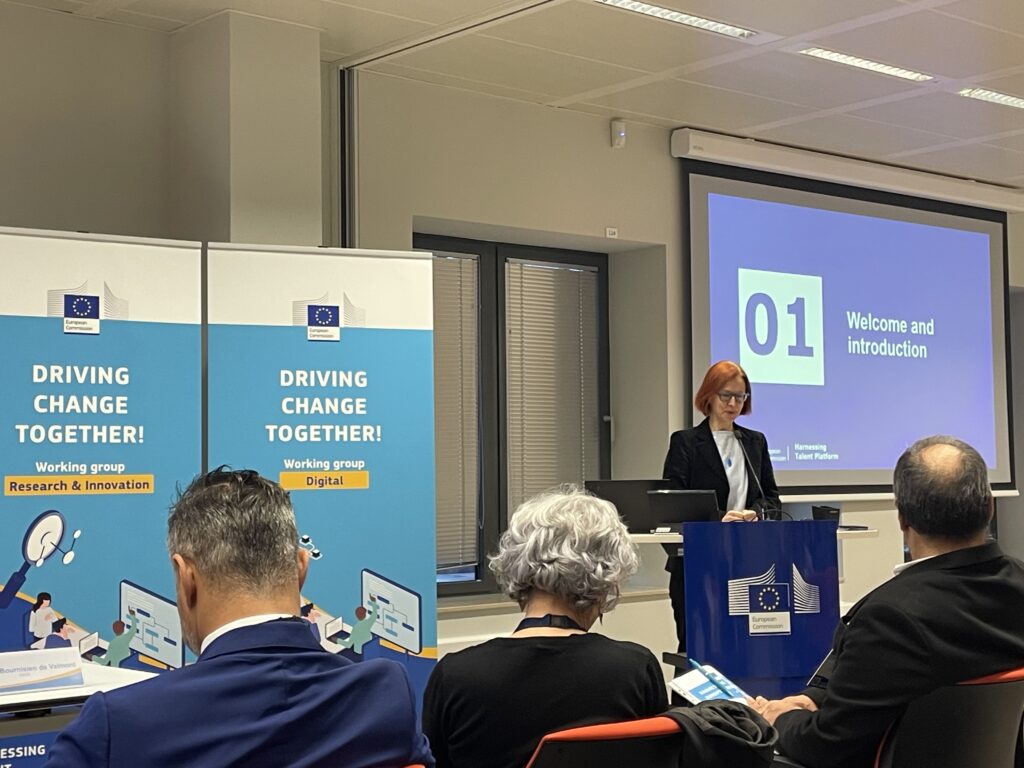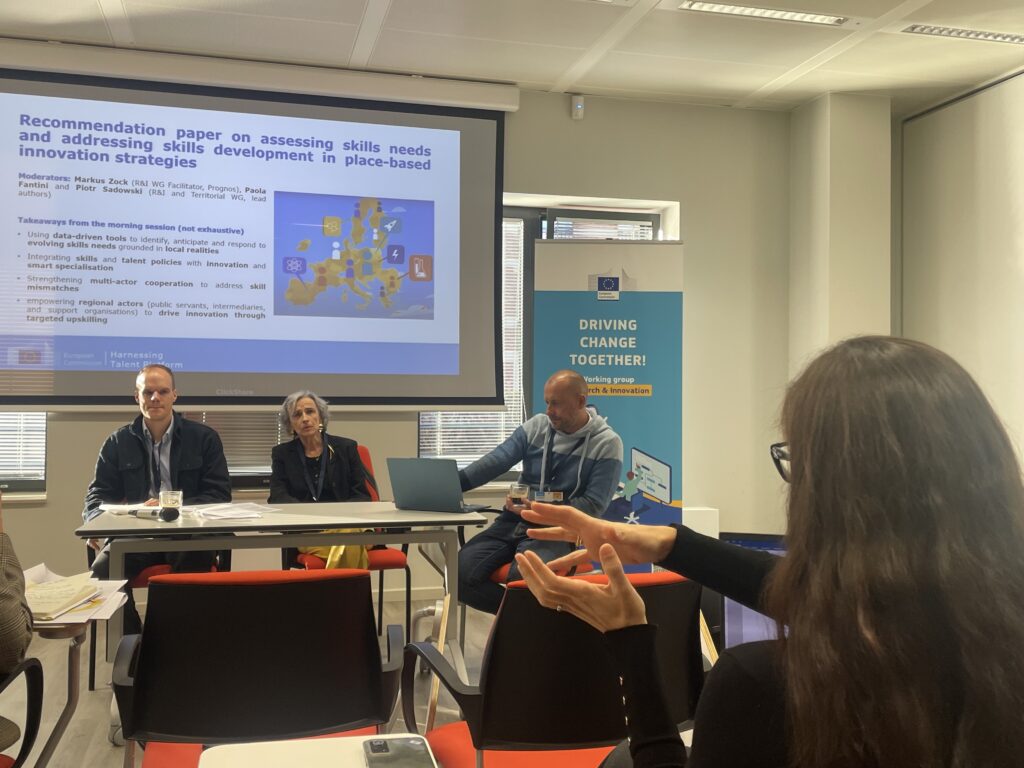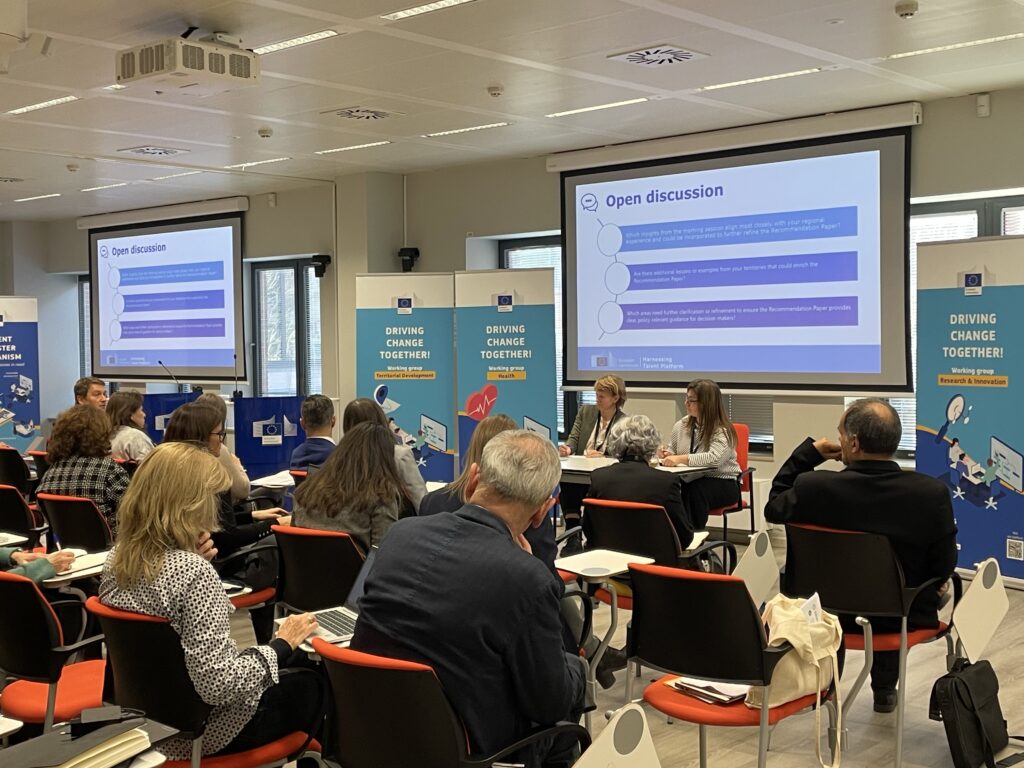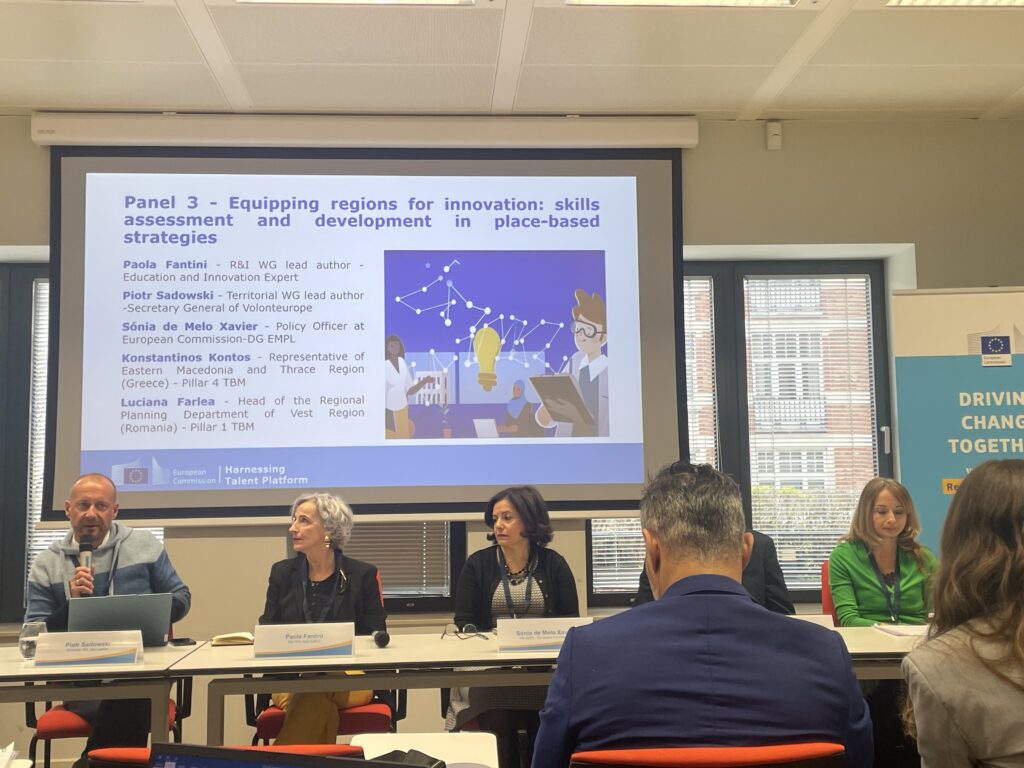From Digital Readiness to Skills Innovation: EARLALL at the HTP Working Groups Meeting
24/11/2025

On 21 November, the European Commission hosted the third meeting of the Harnessing Talent Platform (HTP) Working Groups in Brussels. This session is part of the ongoing work under Pillar 7 of the Talent Booster Mechanism (TBM).
EARLALL has been participating in the process since its launch in November 2023, contributing actively to the Research & Innovation (R&I) Working Group and supporting the development of shared outputs aimed at helping regions address demographic challenges.
The meeting was opened by Kadri Uustal, Head of Unit for Cities, Communities and People at the European Commission (DG REGIO), who highlighted the growing urgency of demographic change across Europe and the need to reinforce essential services as a foundation for attracting and retaining talent. She also presented upcoming Commission initiatives, including the development of a “right to stay” approach, and outlined the timeline for the final HTP deliverables, set for publication in March 2026.
The meeting featured three panels that explored how regions can strengthen their capacity to attract, develop and retain talent. Speakers from the European Commission, OECD, regional authorities and Working Group experts shared perspectives on emerging challenges and practical solutions.
The first panel underlined that the availability, accessibility and quality of essential services—healthcare, education, mobility, digital connectivity and social care—are critical to attracting and retaining talent in all types of regions. The second panel, dedicated to Digital Innovation and Regional Talent Readiness, explored how strong digital ecosystems can equip regions for emerging labour market needs. Working Groups shared progress on a new self-assessment tool designed to help territories evaluate and strengthen their digital talent readiness. The third panel examined how skills strategies can reinforce regional innovation systems and support place-based development. EARLALL contributed to this discussion through its active participation in the Research & Innovation Working Group.



In the afternoon, Working Groups came together in dedicated breakout sessions to refine the three joint deliverables currently under development:
- Recommendation Paper on Essential Services and Quality of Life
- Regional Talent Readiness Self-Assessment Tool
- Recommendation Paper on Skills Development in Place-Based Innovation Strategies
Members reviewed the insights gathered during the morning panels, discussed outstanding gaps, and explored how to strengthen the practical relevance of each output for regional implementation. The workshops focused on translating the WGs’ analytical work into concrete, actionable recommendations that can support regions facing demographic, economic and skills-related challenges.
Over the coming months, the Working Groups will finalise their deliverables, ahead of their planned publication in March 2026. This phase will also include final consultations and the release of the second volume of the good practices catalogue.
In her closing remarks, the European Commission underlined the strong coherence emerging across the four Working Groups. While each group began with a distinct thematic focus, their outputs are now converging into a well-aligned and mutually reinforcing set of recommendations designed to address Europe’s diverse demographic challenges.
The Commission highlighted several key messages:
- All regions face demographic pressures, albeit in different forms, and therefore need adaptable, forward-looking policy tools.
- High-quality essential services—including health, education, mobility and social support—must remain at the centre of talent strategies, as they directly shape quality of life and regional attractiveness.
- The final outputs should provide practical, implementable guidance that reflects local realities and supports long-term strategic planning.
- Knowledge valorisation, inclusiveness and territorial relevance must remain core principles throughout the Talent Booster Mechanism.
The Commission also emphasised the importance of ensuring that the forthcoming recommendations are communicated effectively to regions and genuinely support them in addressing their challenges in a fast-changing environment.
EARLALL will continue to contribute expertise and regional perspectives to the R&I Working Group, ensuring that learning, skills and territorial needs remain at the centre of EU talent policies.

